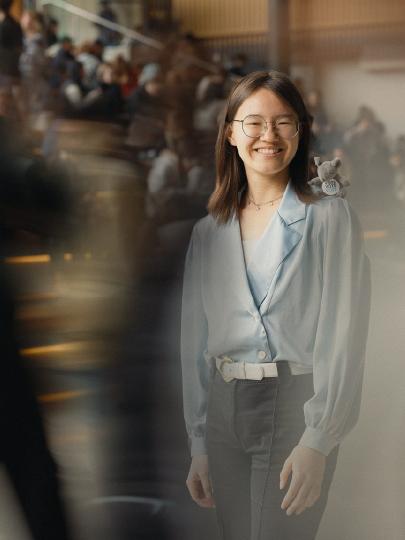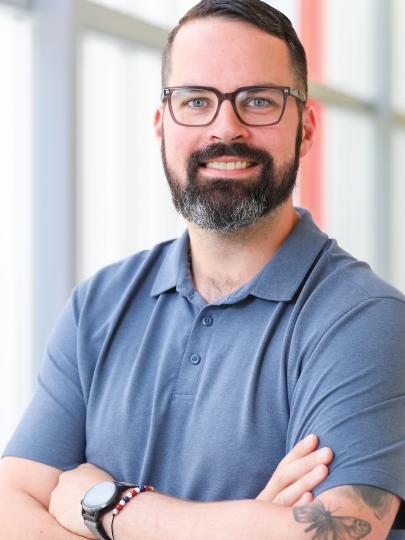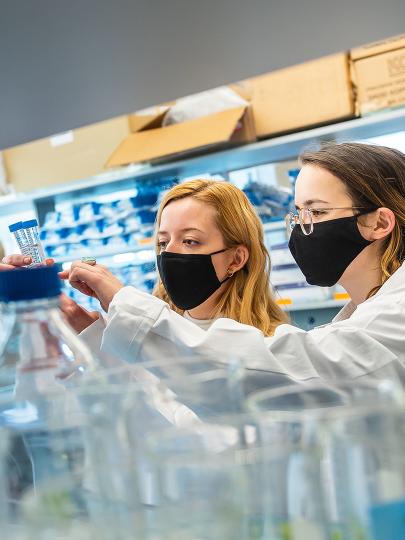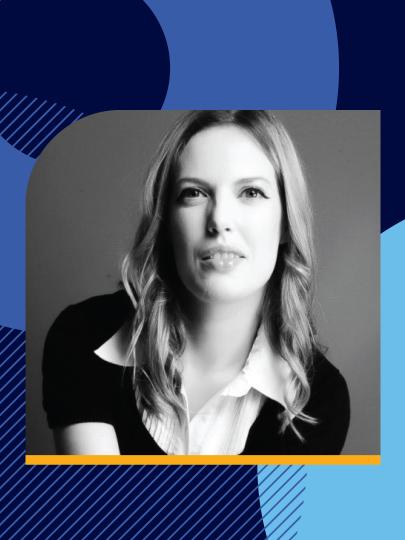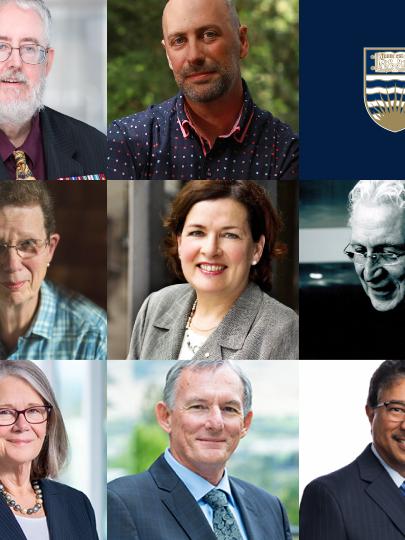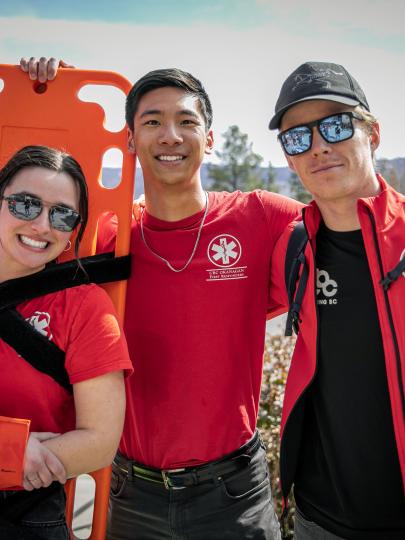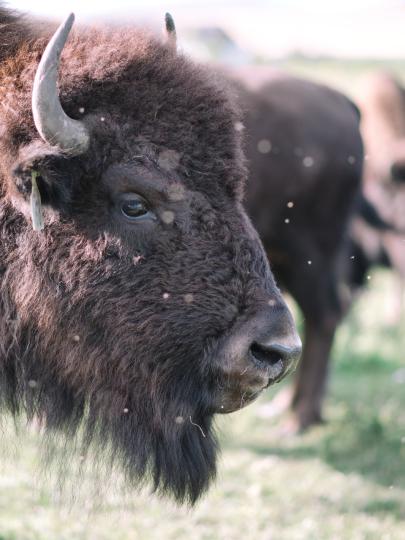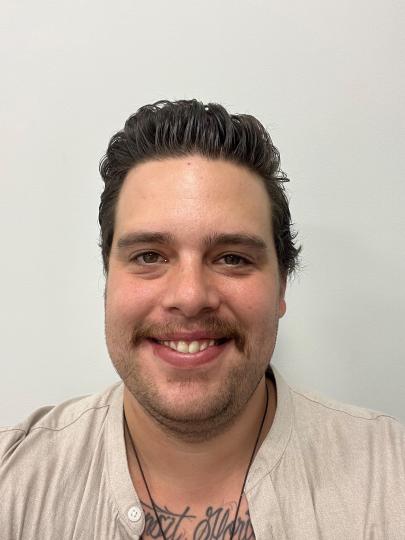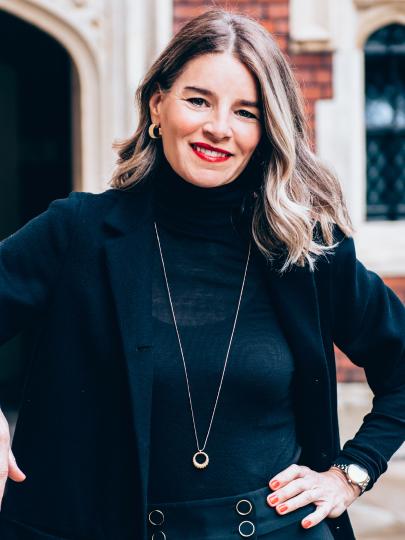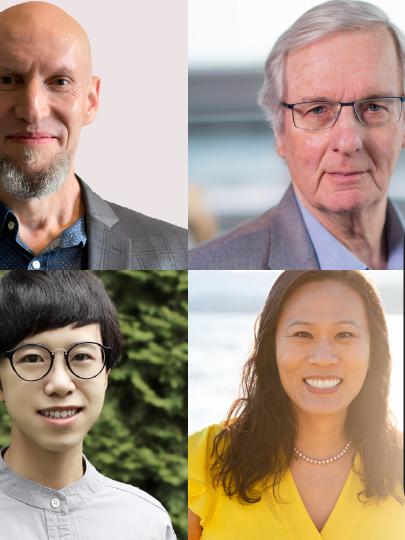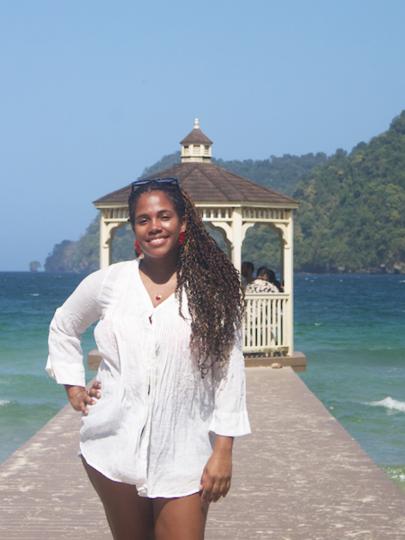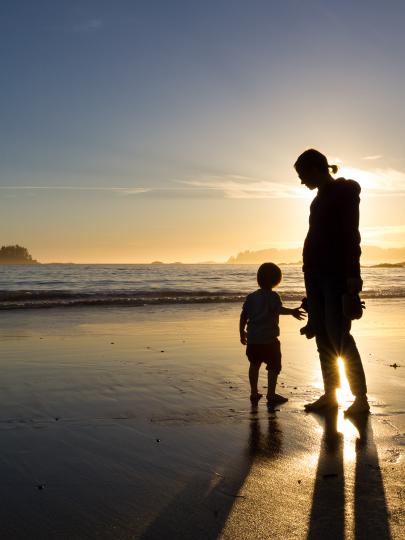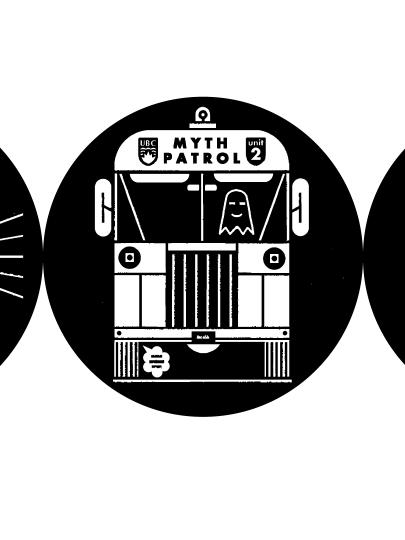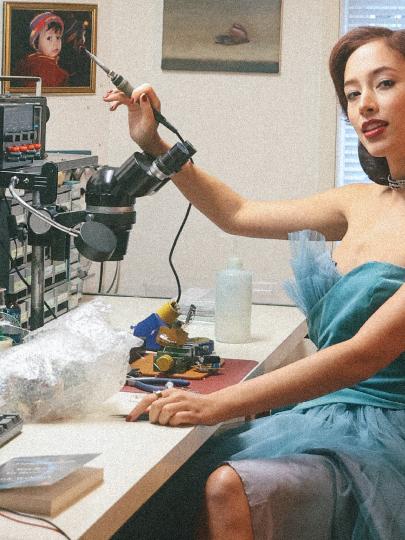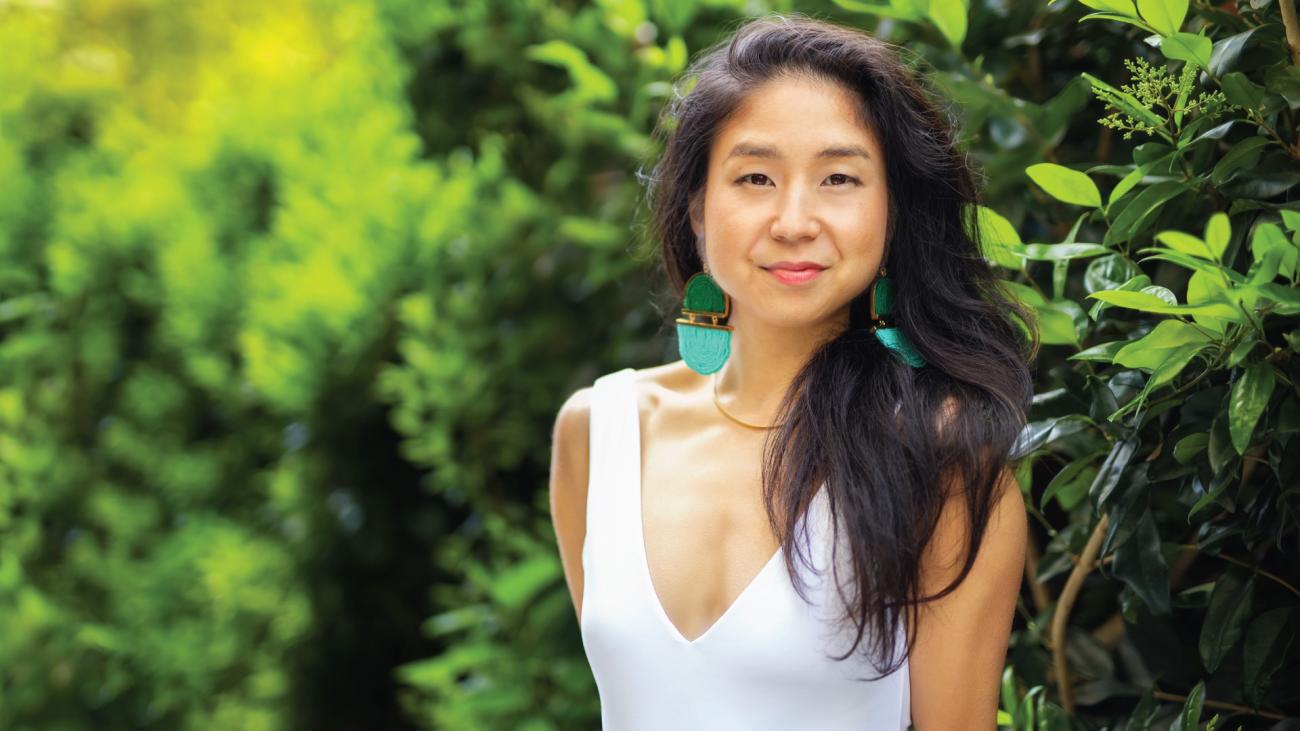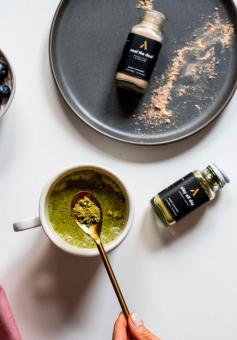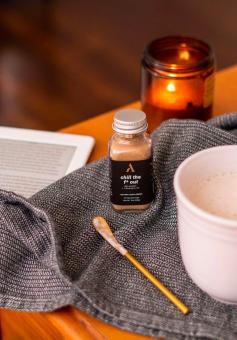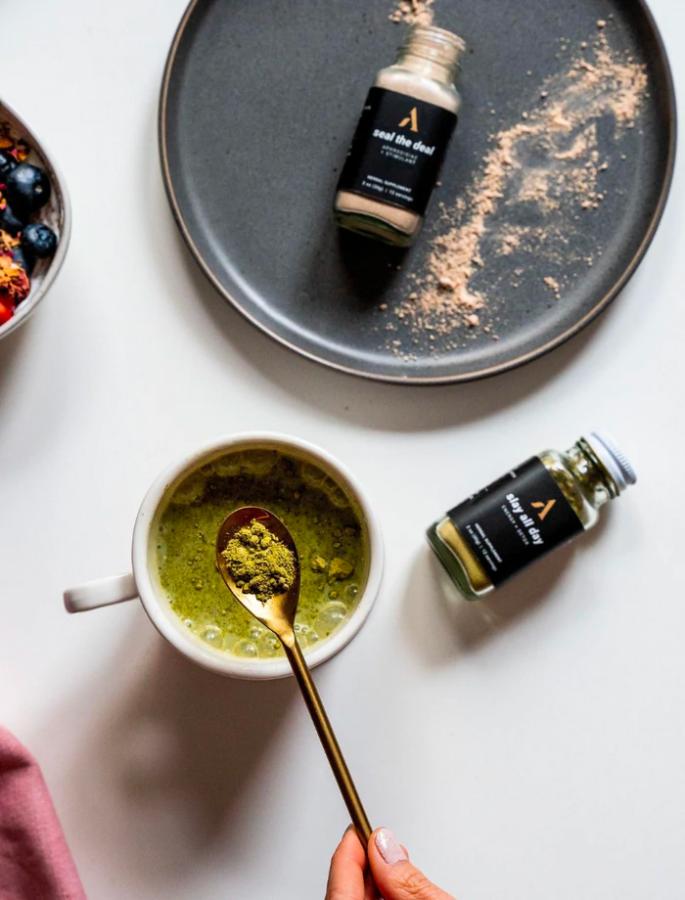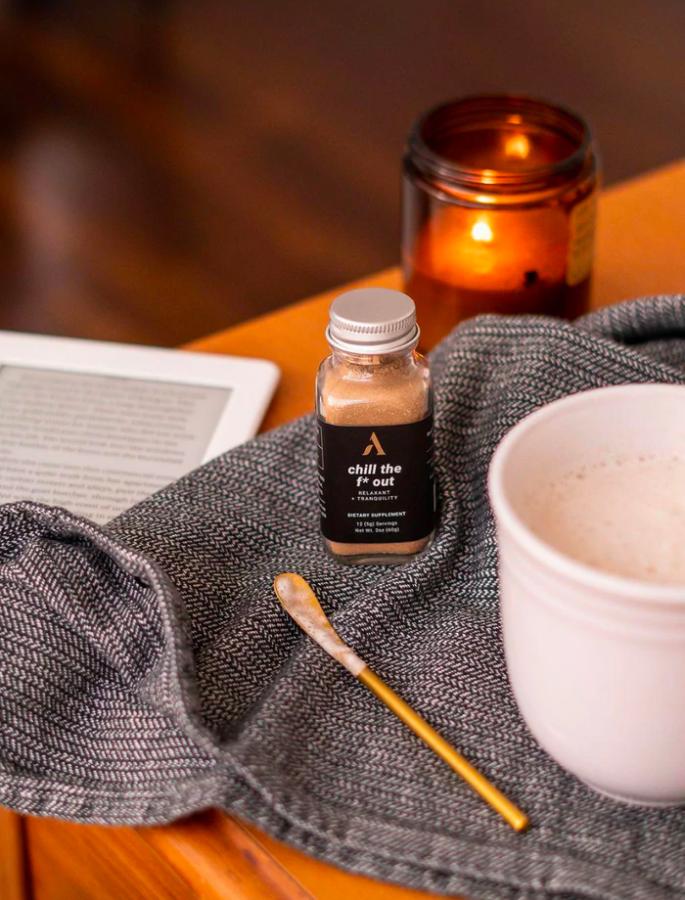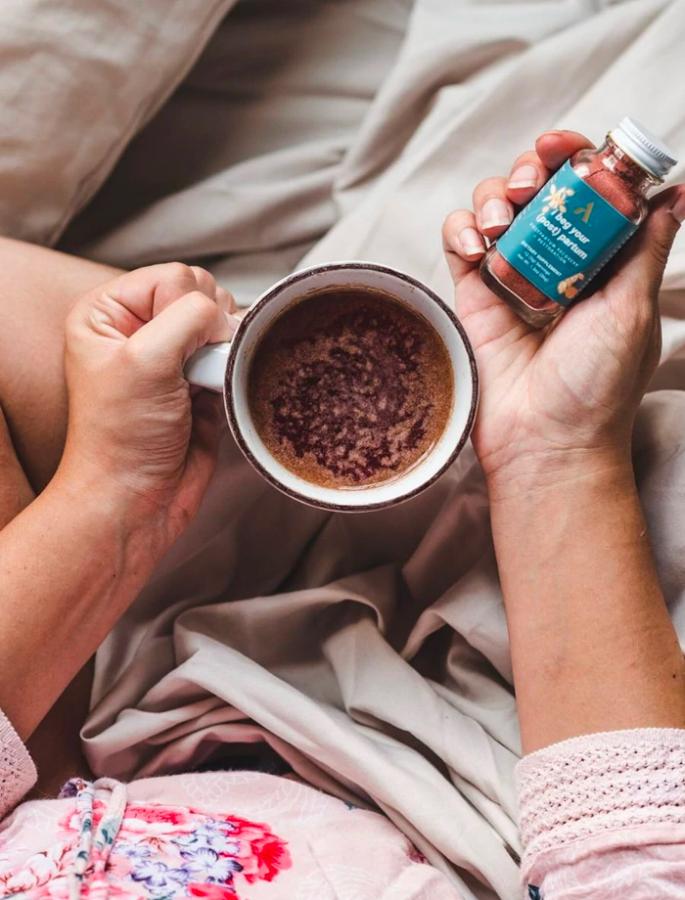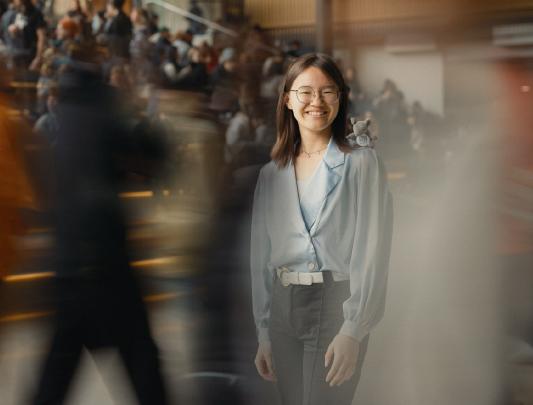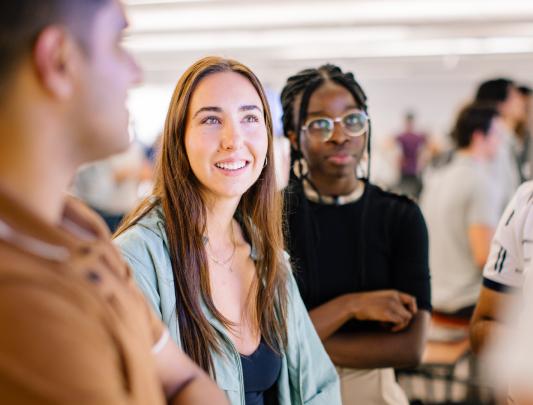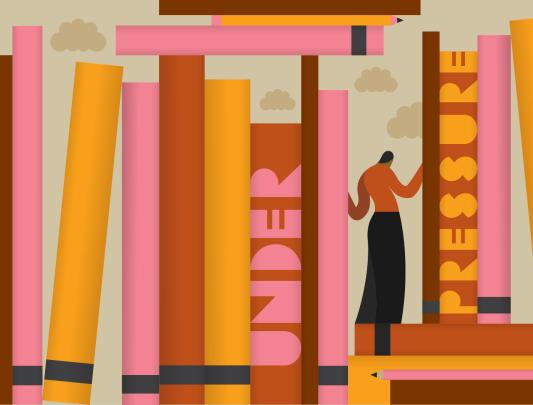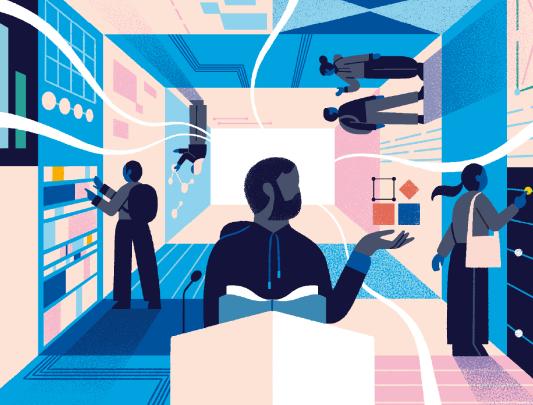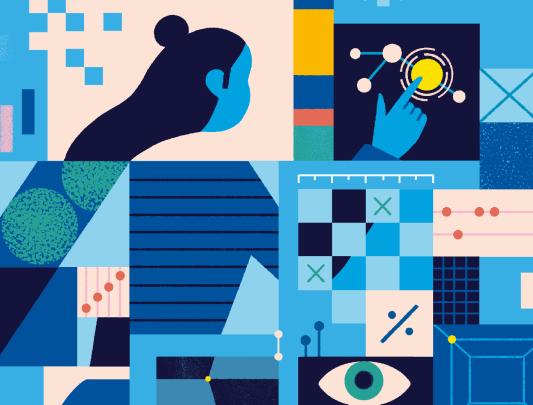Tackling life the entrepreneurial way
A UBC alum who went from Wall Street to founding her own wellness company illustrates how embracing risk and innovation can help to overcome challenges.
Every morning, Shizu Okusa (BCom’10) has the same thought before stepping into the bath: “Oh, I don't want to do this.”
That’s because it’s not just any bath — it’s a tub filled with ice cubes.
But freezing waters be damned, she does it anyway.
Why? Enduring her chilly morning shock, she explains, helps her fortify her mind for the workday ahead. It’s part of her daily practice of taking leaps of faith and tackling difficulties.
“Practice makes things easier and easier over time,” the spirited Okusa says in a Zoom chat from San Francisco. She adds that’s particularly the case when it comes to risk-taking.
As the founder of the plant-based pharmacy Apothékary, she believes entrepreneurship is “all about taking risks.”
But being comfortable with uncertainty isn’t just an essential quality for those launching startups — an entrepreneurial mindset can be used by anyone wanting to make changes in their lives. In fact, Okusa’s story illustrates how applying this innovative approach to life challenges can lead to professional and personal growth.
Slaying it forward
Okusa is one such go-getter who has pressed ahead in the face of uncertainty. In 2019, she launched Apothékary (with headquarters in Falls Church, Virginia) and has undertaken the “very hard task” of bridging traditional Eastern herbal medicine with preventative care and Western science.
The self-described “farmacy” offers herbal blends that tackle everything from immune and digestive system concerns to anxiety, stress, and sleep problems to libido, energy, and skincare. With playful names like the I Beg Your (Post)Partum restorative blend, Slay All Day gut support, and Chill the F* Out relaxant, the company and its products are packaged in an “approachable” North American presentation.
All of that not only reflects Okusa’s vibrant personality, but also her willingness to innovate and forge new pathways.
“Without that sort of entrepreneurial attitude, it can be so easy to turn into a corporate entity,” she says, “versus constantly taking risks and trying new things and challenging the status quo, doing things that have never existed, having conversations with people that have never been had.”
She also admits that there’s some madness in the method.
“I think you have to be a level of crazy in some ways to be an entrepreneur because it just logically makes no sense, right?”
To wit, she notes how entrepreneurs “take on so much debt, you cut people out of your life, you don't pay yourself for a number of years” and that “it’s not for everybody.”
Yet she believes that the “massive leaps and jumps and risks” that she took prior to launching Apothékary became “practice for starting my own business."
Pivoting on purpose
Throughout her adult life, some major transitions have forced Okusa to hone another essential entrepreneurial skill — being flexible and adaptable.
After graduating from the UBC portfolio management program in 2010 and interning in Toronto, she “networked” her way to Wall Street in New York City. Yet when she experienced burnout after about three years at Goldman Sachs, she asked herself how she would feel about her life if she were to die tomorrow — would she only have her professional career to look back upon, at the expense of other aspects of life?
Facing an existential dilemma, she realized she didn’t know what her ikigai (the Japanese concept of life purpose) was. Feeling lost, she made a “hard switch” — she cut all ties with her previous life and relocated from New York City to a banana farm in Maputo, the capital of Mozambique. There, she served as a consultant for farmers to help raise funds for their projects.
That was until, on an early-morning jog, she had a near-death experience when a man jumped and robbed her, leaving her lying on the ground in shock. That prompted her to leave and make another quantum leap into the unknown.
Wandering into wellness
Having previously travelled to South Africa, Swaziland, Tanzania, and Bhutan, her “healing journey came into place” when she undertook yoga instructor training and ayurvedic medicine training in Bali, Indonesia.
Okusa’s interest in natural health and nature harken back to her upbringing.
In Vancouver, she was raised in a traditional Japanese family with strong connections to the earth. While growing up on a farm in Surrey, her mother was a potter and her father was a farmer and landscape gardener, who worked on Vancouver’s Momiji Gardens and UBC's Nitobe Memorial Garden.
Furthermore, whenever she was sick as a youngster, she would ask her mother for Advil but, unless it was a prolonged illness, she would instead receive Japanese medicine; ginger, lemon, and honey tea; or “really gross drinks” made of brewed herbs.
As an adult, she drew upon this background and channelled it into her livelihood, once again demonstrating entrepreneurial resourcefulness.
"There are so many things as a founder [that] you just don't know — and that's okay.”
Storming many walls
That doesn’t mean, however, that it’s all been smooth sailing.
From customer concerns to legal issues, Okusa needs to constantly exercise her critical thinking and problem-solving abilities, which she says is one of the main jobs of being a business owner. Those qualities are also essential for anyone interested in applying an entrepreneurial approach to overcoming obstacles in life.
As about 80 per cent of Apothékary’s ingredients come from Asia, for instance, her biggest challenge has been figuring out how to build a supply chain. That includes contending with language barriers and timing issues, and ensuring that the sources of her supplies are organic, natural, and ethical. (As if that’s not enough, the COVID-19 pandemic has caused shipping delays.)
There are “so many unknowns when you’re building a business,” she explains. “But there are so many things as a founder [that] you just don't know — and that's okay.”
Yet after climbing Mount Kilimanjaro in 2011, what she learned about dealing with difficulties is: “You just quickly kind of learn and grow with taking one step at a time,” she says. “Actually, that one step at a time gets you higher and higher than taking that large jump.”
Progressing bit by bit may seem to contradict the major changes that Okusa has made throughout her life. However, she’s a great believer in embracing innovation and considering multiple approaches. Whether travelling to unfamiliar places or making career changes, her willingness to try things out in new and different ways reflects the entrepreneurial skill of being adaptable and flexible.
Reconnecting with her roots
Ice, for instance, isn’t the only thing she bathes in. A counterpoint to her daily cold-water wakeup calls, she also immerses herself in the Japanese practice of “forest bathing,” or shinrin-yoku. Each day, she takes long walks (about three hours “at the very least”) through treed areas around San Francisco’s Golden Gate Park. She says she didn’t start doing this restorative ritual until after Wall Street and experiencing the “incredible, beautiful, untouched, natural world” in Mozambique and other locales around the world.
After years of many dramatic transitions, she feels that she’s “coming back home in many ways” by pursuing healing and wellness, sharing Japanese culture, and working her way back to Vancouver.
While applying numerous entrepreneurial qualities — comfort with risk, flexibility and adaptability, innovation and creativity, critical thinking and problem-solving — to address the many challenges that life threw her way, she has also woven together her many disparate worldly experiences.
By doing so, she appears to have found her ikigai by coming full circle.
“I think it’s an incredible journey to get back to our roots in a figurative and literal way,” she says.
